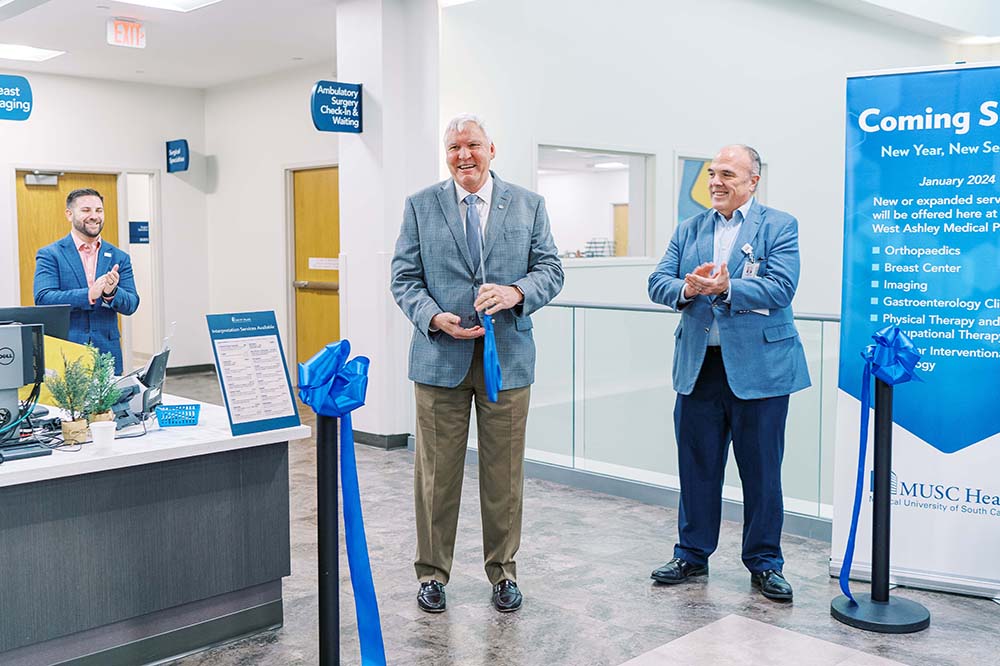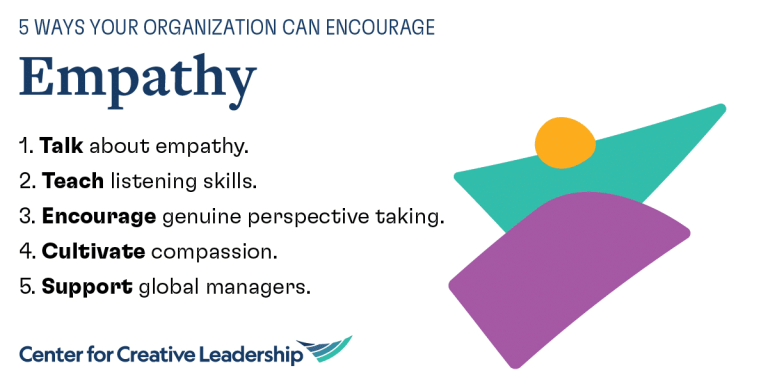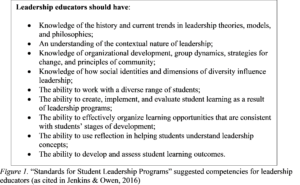Do Leadership Skills Fade With Age?
Leadership skills do not fade with age; rather, they evolve and mature, bringing a wealth of experience and wisdom to guide and inspire others. As individuals progress through their careers and accumulate years of professional and personal growth, they develop a deeper understanding of effective leadership strategies and acquire the ability to adapt to changing circumstances.
Age enables leaders to navigate complex challenges with the benefit of hindsight and a broader perspective, facilitating better decision-making and fostering the development of future leaders. People of all ages can continue to develop their leadership skills through continuous learning, self-reflection, and embracing new ideas and technologies.
Age should not be perceived as a limitation; rather, it can enhance and strengthen a leader’s ability to inspire and motivate others towards success.
Age And Leadership
As individuals age, questions often arise about the impact of age on their leadership abilities. Many people wonder if leadership skills fade with age or if experience enhances these skills. The relationship between age and leadership is an intriguing topic that deserves exploration. While age can bring wisdom and experience, it can also lead to challenges and changes in leadership capabilities. Let’s delve deeper into the relationship between age and leadership skills.
- Experience: With each passing year, leaders gain valuable experience that shapes and refines their leadership skills. Through different situations and challenges, they develop insight and accumulate knowledge that can positively impact their approach to leadership.
- Adaptability: The ability to adapt to changing circumstances is crucial in leadership roles. Younger leaders may possess a natural ease in adapting to new trends and technology, but older leaders can leverage their experience to adapt their leadership style and strategies accordingly.
- Mental Agility: While cognitive flexibility may decline with age, older leaders often compensate by acquiring a deep understanding of their field and sharpening their critical thinking skills. This can help them make sound decisions and solve complex problems effectively.
- Emotional Intelligence: Emotional intelligence, or the ability to perceive and manage emotions, is a crucial leadership skill. Age can bring increased emotional intelligence as individuals have more exposure to various workplace dynamics and interactions.
- Continued Learning: Leaders who prioritize continuous learning and growth can stay relevant and resilient, regardless of their age. By embracing new ideas and seeking knowledge, leaders can ensure their skills remain sharp and up-to-date.
- Networking: Building strong professional networks is beneficial for leaders of all ages. However, older leaders may have had more time to establish connections and cultivate relationships, providing them with a broader network to leverage for support, collaboration, and opportunities.
- Motivation and Passion: Passion for their work and a desire to make an impact can drive leaders at any age. While younger leaders might bring energy and enthusiasm, older leaders often possess a deep-rooted passion and commitment that can inspire and motivate their teams.
In conclusion, the relationship between age and leadership skills is multifaceted. While age can bring challenges, such as cognitive decline and resistance to change, it also offers valuable experience, emotional intelligence, and adaptability. By recognizing the factors that influence leadership skills and actively working on personal growth and development, leaders can continuously enhance their abilities, regardless of their age. Age should not be considered a definitive factor in determining leadership capabilities, as individuals can thrive as effective leaders throughout different stages of their lives.

Credit: bernardmarr.com
Leadership Skills In Later Years
Leadership skills can remain strong and vibrant in later years, as age does not necessarily fade them. Experience, wisdom, and a deep understanding of people can actually enhance leadership abilities over time.
As leaders navigate their careers and gain experience, there is a common question that arises: Do leadership skills fade with age? Many believe that the passage of time diminishes a person’s ability to lead effectively. However, contrary to this belief, leadership skills can actually thrive in later years due to two key factors: experience and wisdom, as well as adaptability and flexibility.
Experience And Wisdom
Experience and wisdom are invaluable assets that come with age. Leaders who have spent years honing their skills and accumulating knowledge can draw upon their past experiences to make more informed decisions. With each challenge faced and lesson learned, a leader gains insights that younger counterparts may lack. This wealth of experience allows older leaders to bring a unique perspective to the table, making them a valuable asset to any organization.
The wisdom that accompanies age is also a significant factor in leadership effectiveness. Wisdom adds depth and discernment, enabling older leaders to make well-thought-out judgments and guide their teams with a steady hand. It comes from a deep understanding of human behavior and the complexities of the business world, ultimately leading to better decision-making and stronger leadership.
Adaptability And Flexibility
While experience and wisdom are crucial, adaptability and flexibility are equally important leadership skills in later years. Age should never be a barrier to embracing change and thriving in transformative environments. Effective leaders recognize the importance of staying abreast of emerging trends and technologies, continually learning and evolving their skill sets. They are open to new ideas, willing to take calculated risks, and able to adjust their leadership style to suit the needs of their teams and organizations.
In an ever-changing business landscape, adaptability and flexibility are essential. Leaders who possess these skills are more likely to inspire and motivate their teams, successfully navigate challenges, and seize opportunities for growth.
In conclusion, leadership skills can indeed flourish in later years. The combination of experience, wisdom, adaptability, and flexibility positions older leaders to make a significant impact. Organizations that recognize and leverage the unique strengths of their seasoned professionals stand to benefit from their invaluable contributions, creating a conducive environment for leadership growth at any age.
Challenges Faced By Older Leaders
Leadership skills can be affected by age, presenting challenges for older leaders. As time passes, leaders may face difficulties adapting to new technologies, changing workplace dynamics, and the evolving needs of their teams. However, these challenges can be overcome through continued learning and development.
Resistance To Change
One of the challenges faced by older leaders is their resistance to change. As individuals age, they tend to become more set in their ways and may struggle to adapt to new ideas or technologies. This can hinder their ability to lead effectively in a rapidly evolving business landscape.
This resistance to change can manifest in a variety of ways. Older leaders may be hesitant to adopt new technologies, preferring to stick with familiar methods. They may also be resistant to new ideas or approaches, preferring to rely on their established ways of doing things.
This resistance to change can have a detrimental impact on a leader’s ability to innovate and keep up with competitors. It can also create tension within the organization, as younger employees may have different perspectives and ideas that clash with the older leader’s more traditional mindset.
Stereotypes And Bias
Another challenge faced by older leaders is the presence of stereotypes and bias in the workplace. While ageism is prohibited by law, it can still persist in subtle ways. Older leaders may face assumptions that they are less motivated, less adaptable, or less capable of leading effectively due to their age.
These stereotypes and biases can create a barrier for older leaders, leading to diminished opportunities for advancement or decreased respect from colleagues. It can also contribute to feelings of isolation and a lack of confidence in their own abilities.
However, it is important to recognize that age does not determine a leader’s ability. Older leaders bring valuable experience, wisdom, and a unique perspective to the table. They have likely overcome numerous challenges throughout their career and have honed their leadership skills over time.
By challenging these stereotypes and biases, organizations can create a more inclusive and supportive environment for older leaders. Recognizing and valuing the contributions of older leaders can lead to increased engagement, enhanced collaboration, and ultimately, a stronger organization.
Maintaining And Enhancing Leadership Skills
As individuals grow older, it is natural to question whether their leadership skills fade with age. However, the reality is that leadership skills can be maintained and even enhanced over time. The key lies in continued learning and development as well as engaging in mentorship and collaboration.
Continued Learning And Development
Continued learning and development are vital in maintaining and enhancing leadership skills. Successful leaders understand that the world is constantly evolving, and they must adapt to stay relevant. By actively seeking out new knowledge and skills, leaders can expand their understanding of industry trends and advancements.
Effective leaders embrace lifelong learning through various means, such as attending industry conferences, workshops, and seminars. They also stay updated with the latest literature in their field and seek opportunities to incorporate new strategies and approaches into their leadership style.
Furthermore, leaders can nurture their skills through professional development programs and certifications. These initiatives not only provide valuable insights but also serve as a testament to their commitment to ongoing growth. By investing time and effort in continued learning, leaders can ensure their skills remain sharp.
Mentorship And Collaboration
Mentorship and collaboration play a crucial role in maintaining and enhancing leadership skills. Experienced leaders possess a wealth of knowledge and wisdom that can benefit both emerging leaders and the organization as a whole.
Mentorship allows leaders to impart their expertise and guidance to the next generation of leaders. By serving as mentors, experienced leaders can help others navigate challenges, develop new skills, and build confidence in their abilities. Furthermore, the act of mentoring can also provide an opportunity for self-reflection and growth for the mentor themselves.
Collaboration is equally important in leadership development. Through collaboration, leaders can tap into the diverse perspectives and skills of their peers and team members. By working together towards shared goals, leaders can learn from one another, exchange innovative ideas, and collectively solve complex problems.
Effective leaders actively seek out opportunities for both mentorship and collaboration, whether through formal programs or informal networking. By fostering a culture of support and collaboration, leaders can continuously develop their skills while guiding others on their leadership journey.
Age Diversity In Leadership
Age diversity in leadership is a crucial factor that can greatly impact the success of organizations. In order to build effective and dynamic teams, it is essential to foster an inclusive work environment that embraces leaders from different age groups. This not only brings a diverse range of experiences and perspectives to the table but also ensures that leadership skills remain relevant regardless of age.
Benefits Of Age Diversity
Age diversity in leadership offers numerous benefits that contribute to the overall growth and development of an organization:
- Enhanced Decision-Making: When leaders of different ages collaborate, they bring a wealth of combined knowledge and experience, allowing for a well-rounded decision-making process.
- Innovation and Creativity: Older leaders often possess years of industry expertise, while younger leaders may bring fresh ideas and perspectives. This combination fosters innovation and fosters a culture of creativity within the organization.
- Mentorship Opportunities: Age diversity in leadership creates opportunities for mentorship and knowledge sharing. Younger leaders can learn from the experience of their older counterparts, while seasoned leaders can gain insights into new technologies and trends from younger team members.
- Adaptability and Resilience: A diverse leadership team consisting of leaders from different age groups is better equipped to adapt to changing market dynamics and navigate uncertain times.
Creating Inclusive Work Environments
Creating an inclusive work environment is essential to leverage the benefits of age diversity in leadership. Here are some strategies to foster inclusivity:
- Valuing All Perspectives: Encourage open and respectful communication, ensuring that everyone’s opinions and suggestions are heard and valued.
- Flexible Work Arrangements: Implementing flexible work arrangements can help accommodate different needs and preferences among leaders of different age groups.
- Training and Development: Offer training and development programs to bridge any skill gaps and ensure that leaders of all ages have access to the latest industry knowledge and best practices.
- Promote Collaboration: Foster a collaborative culture where leaders from different age groups are encouraged to work together, exchange ideas, and learn from one another.

Credit: web.musc.edu

Credit: www.amazon.com
Frequently Asked Questions For Do Leadership Skills Fade With Age?
Faq 1: Can Leadership Skills Improve With Age?
Yes, leadership skills can improve with age through experience, adaptability, and continuous learning.
Faq 2: Do Leadership Skills Decline As You Get Older?
No, leadership skills do not necessarily decline with age. It depends on the individual’s mindset, willingness to adapt, and continuous personal growth.
Faq 3: Are Older Leaders Less Effective In Today’s Fast-paced World?
No, older leaders can be just as effective in today’s fast-paced world. Experience and wisdom can provide valuable insights and guidance in navigating complex challenges.
Conclusion
Leadership skills can indeed fade with age, but it is not a universal truth. With time, experience, and ongoing self-improvement, leaders can constantly develop and adapt their skills to remain effective. Age should not be seen as a barrier but rather as an opportunity for growth and wisdom.
It is important to engage in continuous learning, stay up-to-date with industry trends, and embrace new technologies to stay relevant in today’s ever-changing world. By doing so, leaders can ensure their skills remain sharp and impactful throughout their careers.


